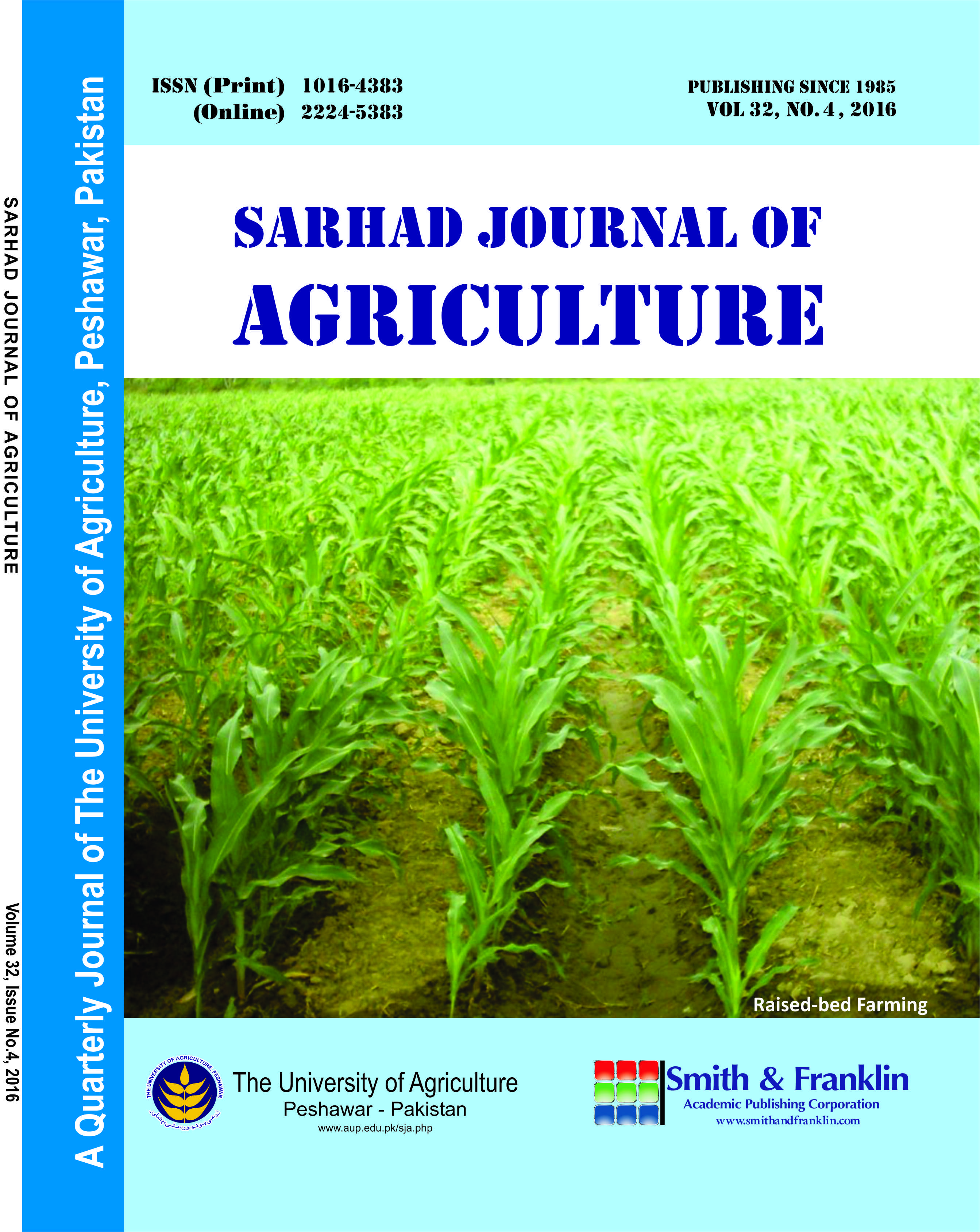Impact of Climate Change on Wheat Growers Net Return in Khyber Pakhtunkhwa: A Cross-Sectional Ricardian Approach
Impact of Climate Change on Wheat Growers Net Return in Khyber Pakhtunkhwa: A Cross-Sectional Ricardian Approach
Hassan Hashim Ghalib, Syed Attaullah Shah*, Abbas Ullan Jan and Ghaffar Ali
ABSTRACT
This study employs a cross-sectional Ricardian Model to investigate impact of temperature and rainfall on wheat growers’ net-return in Khyber Pakhtunkhwa (KP) province of Pakistan. Data for this purpose are collected from 255 wheat growers, selected from Southern, Central and Northern climatic zones of KP. Results from descriptive statistical analysis demonstrate that net-return per acre from wheat crop is highest in the Central zone because of conducive agro-climatic conditions. The estimated Cross-sectional Ricardian Model reveals that temperature and rainfall have non-linear relationships with net-return per acre. The relationship between growers’ net-return and atmospheric temperature, represented with a temperature response curve, is inverted U shaped having a yield maximizing temperature level of 25oC. The rainfall response curve for net-return is U shaped and the minimum net-return rainfall level is 89.6mm. Forecasting of net-returns for the whole KP reveals that an increase in temperature by 2oC from current average level could reduce wheat growers’ net-return by 37 percent. Increase in rainfall by 20 percent from current level could increase net-return by 6 percent. In the Central and Southern climatic zones of KP, where average monthly temperature in wheat season is above 25oC, wheat growers’ net return per acre could be hugely affected by temperature increase due to climate change. This change in temperature could positively affect wheat growers’ net-return in the Northern zone. Development of new seed varieties with increased heat tolerance and provision of timely and sufficient water for irrigation would be helpful in reducing future potential losses to wheat growers.
To share on other social networks, click on any share button. What are these?







